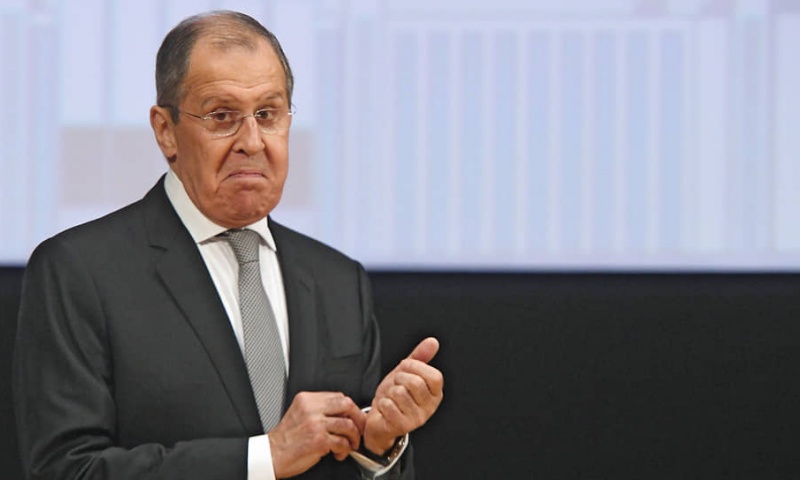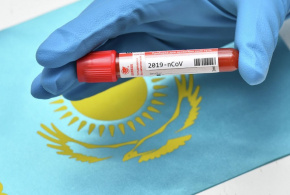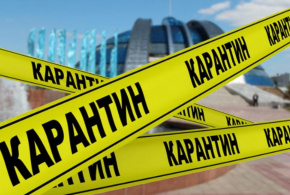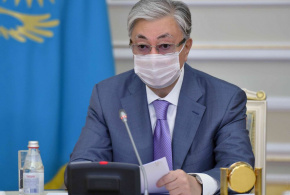
The article by the Minister of Foreign Affairs of the Russian Federation Sergei Lavrov "Russia and Kazakhstan: Cooperation without Borders" became an unusual example of great power diplomacy towards its strategic ally as Kazakhstan. Perhaps, at another time, in different conditions, the opinion of the head of the Russian Foreign Ministry could only become the property of the library or statistics, however, in the current conditions, such statements can have complex consequences.
Several points are surprising.
Firstly, the article dedicated to the jubilee and solemn date of the establishment of diplomatic relations between Russia and Kazakhstan should, according to the logic of diplomacy, consist only of positive aspects and achievements of cooperation between the two countries. However, the article contains an ambiguous opus that recently we have witnessed a number of resonant manifestations of xenophobia towards Russian-speaking citizens of Kazakhstan. Individual cases are largely the product of the use of special information methods from outside, aimed at cultivating nationalism and discrediting cooperation with Russia. Obviously, such statements caused confusion and disappointment in Kazakhstan, to put it mildly.
Secondly, it is difficult to understand the situation which is rather vague, with the lack of reaction from the national media, major electronic publications, pro-government experts of Kazakhstan regarding the content of the article and the opinion of S. Lavrov. Perhaps in another country, one would expect joy from local leaders, opposition parties and the media, seize the moment to unite the nation, determine the level of patriotism, raise one's rating to form a systematic, unified response through discussions, blogs, speeches, information campaigns. However, just the possibilities of social networks, some of the electronic media made it possible to receive some answer and evaluate the reaction of individual experts about the words of the Russian minister regarding the history and present of Kazakhstan.
Thirdly, minister Sergei Lavrov especially highlighted the negative impact of foreign organizations, external forces, which allegedly affect the deterioration of relations between countries, and on the interethnic situation in Republic. A clear allusion to the active role of foreign media and NGOs in the Kazakh media space is reminiscent of a campaign against "foreign agents" in Russia itself. It is known that as a result of Russia's radical legislation against NGOs, the media that receive funding or direct support from foreign states, has led to numerous legal proceedings, fines, and the closure of NGOs in Russia. It can be expected that "friendly" advice can find grateful followers in Kazakhstan.
Obviously, the article has a specific goal and objectives, which can be understood, however, not from the text itself, but within the framework of the general attitude of the Russian leadership to the topic of Kazakhstan's statehood, the future and the role of the Kazakh language, the strategy for choosing partners in international relations. One could look for a hidden background or secret plan of the article of the Russian Minister of Foreign Affairs. Some bloggers and experts in Kazakhstan linked the publication of the article to the VIII summit of the Cooperation Council of Turkic-speaking States. The opinion of Minister S. Lavrov could be informational, an indirect warning to Kazakhstan to limit participation and support the organization, already renamed as the Organization of Turkic States. This idea could be supported if not for the general "information noise" on the topic of Kazakhstan from the Russian media, Russian MPs and radical politicians. In a strange way, it has become trivial to hear accusations, open doubts about the territorial integrity, sovereignty, independence of Kazakhstan which can pursue an independent internal policy from the part of journalists of state media, politicians and deputies of Russia. Gradually, it becomes, over and over again, habitual to read and hear accusations, without consequences for the applicants, and lack of reaction, countermeasures in defense of the historical truth and objective realities of Kazakhstan. Taking this fact, one can, unfortunately, admit that Sergei Lavrov has achieved his goal of quiet confessions or "absent" reaction in Kazakhstan to the accusations made in the article.
It is known that previously there were similar statements that “Kazakhstan simply did not exist… northern Kazakhstan was not inhabited at all ... in fact, the territory of Kazakhstan is a great gift from Russia and the Soviet Union” or that “Russian world, Russian space will restore its borders and order will be restored ". Unfortunately, such statements regarding Kazakhstan are not the first, not new, not surprising, and not shocking. Therefore, it is easy to understand that the usual stage of information pressure on Kazakhstan is taking place. However, an article by one of the top leaders of Russia already shows a new, higher level of political, information campaign regarding Nur-Sultan. It can be assumed that in the future, a similar “peaceful” reaction from Kazakhstan can lead to another, next stage of Russian “suggestions”, which will possibly include an article or opinion on “appropriate” actions, or advice to conduct proper domestic policy in Kazakhstan. In this regard, the article of Minister S. Lavrov is part of the general "mainstream" and the general opinion of the Russian authorities in relation to domestic policy, the level of independence of Kazakhstan in general.
In this article, Minister S. Lavrov noted various bilateral achievements and successes in the form of mutual trade, support in international politics, as well as the EAEU. It is known that at the beginning of the creation of the organization, the heads of state confirmed that the Eurasian Economic Union is a common project, where countries will be equal members and participants. However, such articles and statements are examples that show that there is only one owner in a common house, while others must make excuses or pretend that "nothing is happening".
Summing up, we would like to note that objectivity is the main thing in diplomacy between countries, which requires taking into account facts and evidence. However, such statements by politicians and Russian officials show that everyday private conflicts, bloggers' hypes, the behavior of drunk people can increasingly be taken as an witnesses and evidence for accusations. The minister of a great power, assessing interethnic relations in the Republic, should rather point out the facts that the million Kazakh population of Russia does not have a public school with Kazakh language of instruction, or that exporting goods of Kazakhstan encounter various kinds of barriers on the border with Russia, or that wanted criminals of Kazakhstan find refuge in Russia.
Sharip Ishmuhamedov, A+ Analytics



















 Difficult steps to nurturing a "new generation of optimists"
Difficult steps to nurturing a "new generation of optimists"
 "Atomic" exam for officials of Kazakhstan
"Atomic" exam for officials of Kazakhstan
 The WHO has made warning to Kazakhstan
The WHO has made warning to Kazakhstan
 COVID-19: More than a thousand Kazakhs infected in one day, but the statistics are incomplete
COVID-19: More than a thousand Kazakhs infected in one day, but the statistics are incomplete
 Tokayev instructed to extend the quarantine for another two weeks
Tokayev instructed to extend the quarantine for another two weeks
 Kazakh president instructed the government to "decide" on the statistics of the coronavirus
Kazakh president instructed the government to "decide" on the statistics of the coronavirus